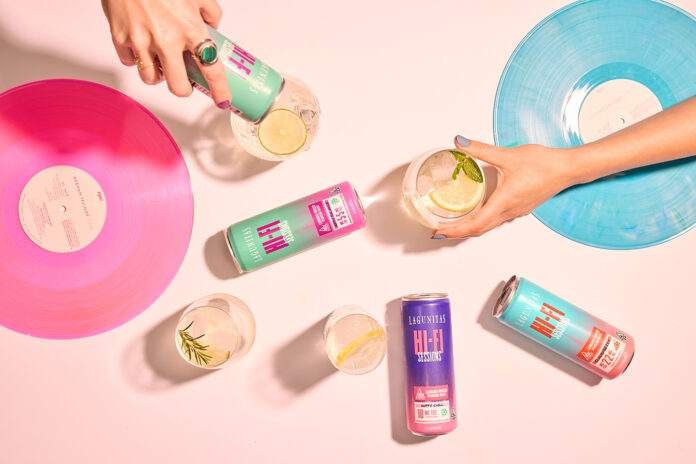Infused beverages haven’t caught on as fast as many insiders predicted, but they are poised to command a growing share of the market as more bars and restaurants put them on their menus and more liquor and convenience stores stock them on their shelves. As a more social alternative to edibles and a hangover-free alternative to alcohol, infused beverages are available in a dizzying variety of flavors and dosages.
Although beverages account for only a small percentage of the industry’s total sales nationwide, the sector is one of the fastest-growing. Beverages make up just 1 percent of all cannabis sales, bringing in $54 million in 2024’s second quarter (an increase of 8 percent over the second quarter of 2023), according to industry analyst BDSA. Despite the beverage sector’s currently small presence, Global Industry Analysts Inc. expects the global market’s value to reach $2 billion by 2026, up from $799.8 million in 2020.
BDSA’s data also reveal beverages compose the fourth largest edibles subcategory with 6 percent of sales, trailing candy (78 percent of the category), chocolates (7 percent), and pills (6 percent). In the second quarter, 144 brands sold beverage products across BDSA-tracked markets, with the top ten best-selling THC beverage brands bringing in a 59-percent share of all beverage sales. Fifty-two of the brands were sold across multiple states, and seventy-two also sold products in other industry categories. Leading brands in the space, according to BDSA, include Keef Cola, St. Ides, Cann, Sip Elixirs, Tonic, Uncle Arnie’s, and Levia.
While alcohol companies remain largely unwilling to develop or market cannabis-infused drinks, some of the largest companies, including Anheuser-Busch and Constellation Brands, are actively pursuing the hemp-based-cannabinoids market in states where cannabis-derived beverages are not available. On the other hand, smaller companies like Pabst and Lagunitas have launched products containing cannabis-derived THC and CBD in the California market.
California has the most developed beverage market in the industry with nearly fifty brands and sales totaling about $20 million in 2024’s second quarter, representing a year-over-year increase of 6 percent. By comparison, Michigan—which recently eclipsed California in total cannabis sales—saw only about $6 million in infused-beverages sales for the whole of 2023. Even so, the figure represented a 32-percent increase over 2022.
While convenience is a major factor in the success of any product, a growing awareness of the social, health, and wellness implications of cannabinoid-infused products apparently plays a significant role in sales.
“I do think the social factor is a big component. Taking a gummy or having a bite of chocolate, there’s not really a social component there,” said Theo Terris, chief executive officer at Uncle Arnie’s corporate parent Fly Beverage Co. “Consuming beverages is something people are used to doing, whether it’s drinking coffee in the morning or having beers after work. It’s also healthier than smoking or vaping.”
Uncle Arnie’s brought in $3.4 million in sales across Oregon and California in 2023’s first quarter and grew its sales by 443 percent in California alone. Terris noted the company’s hemp-based beverages are taking off around the country and now account for about 40 percent of Fly’s revenues.
Beverages infused with hemp-based cannabinoids are a relatively recent phenomenon, but they’re catching on nationwide. Brands including Cann, Recess, Hi, and Vibes command their own section of liquor megastores like Spec’s and Total Wine & More. They’re also becoming more available in convenience stores and mini-marts. Some contain as much hemp-derived THC as cannabis beverages sold in dispensaries.
Whether the trend will continue is an open question. Legislation before Congress and several state legislatures seeks to close what some have called a massive loophole in the 2018 Farm Bill that legalized hemp nationwide as long as the THC concentration is less than 0.3 percent by dry weight. The House of Representatives’ version of the 2025 Farm Bill attempts to define legal hemp products as those that contain only naturally occurring, naturally derived, and nonintoxicating cannabinoids; the bill would ban all consumer products with “quantifiable amounts” of THC. Twenty-four states ban or restrict at least some intoxicating hemp-derived products. A twenty-fifth, Missouri, issued an outright ban on all intoxicating cannabinoid-infused products manufactured outside the regulated market effective September 1.
Nevertheless, if California is any indication of market conditions in the rest of the country, the beverage category will continue doing well in the regulated space. According to market analysts at Headset, infused beverages composed the only category that has experienced positive growth thus far in 2024, with an impressive 7.8-percent increase in sales year to date.












